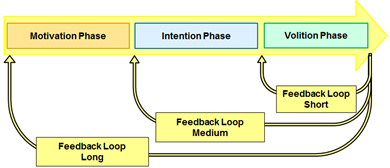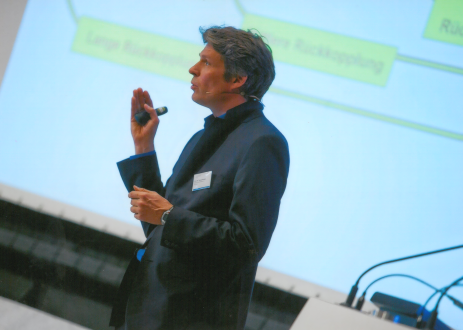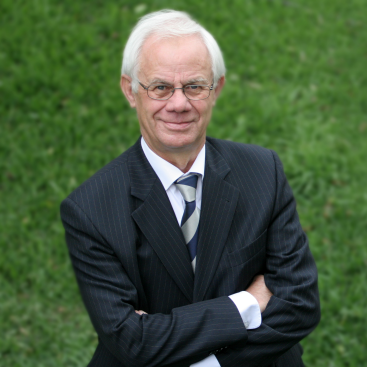 Please find some RSS feeds from important journals in the field of motivation, learning, higher education and computer here.
Please find some RSS feeds from important journals in the field of motivation, learning, higher education and computer here.
Picture by Nicole Henning CC 2.0

 Please find some RSS feeds from important journals in the field of motivation, learning, higher education and computer here.
Please find some RSS feeds from important journals in the field of motivation, learning, higher education and computer here.
Picture by Nicole Henning CC 2.0
 Thomas Martens conducted a workshop on 30 June 2016 at the TU Dresden with the title “Fostering Learning at University: the Heterogeneity of Motivational Processes”. This workshop showed different ways of learning motivation and how the individual learning processes of students can be promoted.
Thomas Martens conducted a workshop on 30 June 2016 at the TU Dresden with the title “Fostering Learning at University: the Heterogeneity of Motivational Processes”. This workshop showed different ways of learning motivation and how the individual learning processes of students can be promoted. 
As theoretical basis served the Integrated Model of Learning and Action (IMLA) which divides the typical processes of learning in three main phases (motivation, intention and volition phase) and defines the relationship to the findings in neuro science from Julius Kuhl (2000).
Photo: kanenas.net
 At the conference of “Bildung und Begabung” [Education & Giftedness] 31 May 2016 with the title “Perspektive Begabung: Diversität als Chance” [Future of Giftedness: Diversity as an Opportunity] Thomas Martens delivered a keynote entitled “Motivation and Educational Perspectives of Gifted Children”.
At the conference of “Bildung und Begabung” [Education & Giftedness] 31 May 2016 with the title “Perspektive Begabung: Diversität als Chance” [Future of Giftedness: Diversity as an Opportunity] Thomas Martens delivered a keynote entitled “Motivation and Educational Perspectives of Gifted Children”.
While one child follows his interests and develops remarkable skills herein, the other child seems rather lackluster and disinterested. Researcher have long been agreed that motivation is a driving factor when giftedness is translated into performance. As different as young people are so different are their motivation profiles. Family, friends, and teachers – they all influence the development of motivation. This can be promoted by empathetic caregivers or be attenuated in critical phases of life. How can we, in the face of these different conditions, support children and young people developing motivation and regulating them properly? How can school or other learning environments handle these motivation processes? What help can be offered?
A podcast of this talk is online (german only):
 This chapter discusses transitions towards learning at university from a perspective of regulation processes. The Integrated Model of Learning and Action is used to identity different patterns of motivational regulation amongst first-year students at university by using mixed distribution models. Five subpopulations of motivational regulation could be identified: students with self-determined, pragmatic, strategic, negative and anxious learning motivation. Findings about these patterns can be used to design didactic measures to support students’ learning processes.
This chapter discusses transitions towards learning at university from a perspective of regulation processes. The Integrated Model of Learning and Action is used to identity different patterns of motivational regulation amongst first-year students at university by using mixed distribution models. Five subpopulations of motivational regulation could be identified: students with self-determined, pragmatic, strategic, negative and anxious learning motivation. Findings about these patterns can be used to design didactic measures to support students’ learning processes.
Please find a preview of this chapter here.
Please cite this chapter as: Martens, T. & Metzger C. (in press). Different Transitions of Learning at University: Exploring the Heterogeneity of Motivational Processes. Erscheint in E. Kyndt, V. Donche, K. Trigwell & S. Lindblom-Ylänne (Eds.), Higher Education Transitions: Theory and Research. EARLI Book Series “New Perspecitves on Learning and Instruction”. London: Routledge.
Psychologica Belgica is happy to announce the publication of Vol 56(2) alongside a  . All content is now available to read online.
. All content is now available to read online.
56: Issue 3 (special issue):
Emerging trends and future directions for the field of motivation psychology: A special issue in honor of Prof. Dr. Willy Lens
Guest edited by Maarten Vansteenkiste & Athanasios Mouratidis
*Picture of Willy Lens by Anja Van den Broeck
Sorry, this entry is only available in Deutsch.
New research projekt started: Sensor Measures of Motivation for Adaptive Learning (SensoMot)
Motivation is one major factor for facilitating deep learning processes. The goal of the research project „SensoMot“ is to predict critical motivational conditions using sensor measures. By deriving adaptive mechanisms, the learning process can subsequently be tailored to the motivational needs of the learner (project description).
Source: Doi: 10.1787/gov_glance-2015-en
This is probably unique in the OECD countries: only in Germany people with a high level of education use less social media (no or low formal education: 51%, high formal education: 42%). In all other OECD countries people with a high level of education use social media more frequently.
Based on the Eurostat survey on “ICT usage by individuals”. To differentiate the take-up of social media, the survey uses different categories of educational attainment based on the International Standard Classification of Education (ISCED). “High formal education” refers to ISCED levels 5 or 6; “low or no formal education” refers to ISCED levels 0, 1 or 2. Countries are ordered by size of the difference between the two measures. More information: http://ec.europa.eu/eurostat/cache/metadata/EN/isoc_bde15c_esms.htm.
Vor kurzem ist der Sammelband
K. Beck, M. Landenberger & F. Oser (Hrsg.) (2016). Technologiebasierte Kompetenzmessung in der beruflichen Bildung. Ergebnisse aus der BMBF-Förderinitiative ASCOT. Bielefeld: Bertelsmann.
erschienen.
Der Band stellt Ergebnisse aus dem BMBF-geförderten Forschungsprogramm ASCOT vor. Insgesamt umfasst die ASCOT-Initiative acht Projektverbünde aus unterschiedlichen Wirtschaftsbereichen (kaufmännisch, gewerblich-technisch, Pflege- und Gesundheitsbereich). Aus dem kaufmännischen Bereich wurden zwei Projekte gefördert, hierunter das Verbundprojekt DomPL-IK (Domänenspezifische Problemlösekompetenz bei Industriekaufleuten), welches an der Universität Mannheim am Lehrstuhl für Wirtschaftspädagogik – Berufliches Lernen und Lehren (Prof. Seifried) gemeinsam mit den Universitäten Bamberg, Frankfurt und Bremen sowie dem Deutschen Institut für Pädagogische Forschung (DIPF) durchgeführt wurde. Die Projektergebnisse finden sich auf den Seiten 119-138 unter dem Titel “Problemlösekompetenz angehender Industriekaufleute – Konzeption des Messinstruments und ausgewählte empirische Befunde (DomPL-IK)”.
Weitere Informationen finden Sie in diesem Flyer und auf dieser Website.